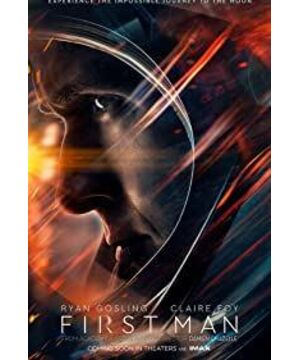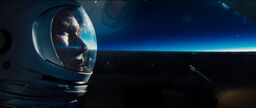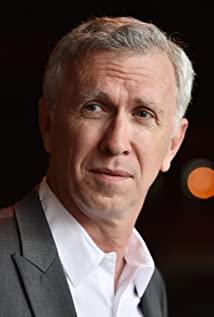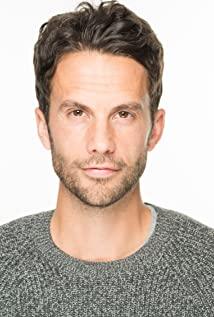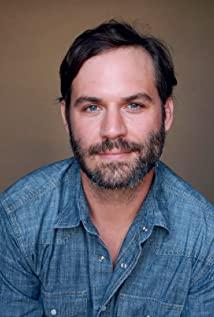In 2014, a movie called "Burst Drummer" turned out.
The film won the Sundance Film Festival Jury Award in one fell swoop, and was nominated for Oscar for Best Picture and Best Adapted Screenplay.
The director of the film, Damien Chazelle, was 29 years old at the time (2014).
In 2016, his second work "City of Philharmonic" was the winner of the awards season and won 14 Oscar nominations. It was the third film after "Comet Beauty" and "Titanic" and won 14 Oscars. The nominated film became one of the most nominated films for Oscars.
Damien also became the best director of the Oscar by virtue of the film.
More importantly, Damien was only 32 years old and 38 days old when he won the award (February 26, 2017), which means that he is not only the best Oscar director, but also the youngest Oscar best director in history.
The previous record holder was Norman Taurog, who won the 4th Oscar for Best Director for "Tao Geer" at the time of the award (November 10, 1931) at 32 years and 228 days.
Norman Taurog's record was maintained for 85 years and 3 months before being broken by Damien.
The debut and second work have been highly recognized by the industry one after another, and Damien is therefore known as one of the most talented directors in modern times.
With the blessings of countless auras, Damien's third film "The First Man on the Moon" was once released at the Venice Film Festival and once again became a hot topic among film critics and netizens.
In addition to the director being an Oscar winner for best director, screenwriter Josh Singer also won the Oscar for Best Original Screenplay for "Focus" and also wrote the script for the "Washington Post".
Producer Spielberg won the Oscar, photographer Linus Sandgren won the Oscar, editor Tom Cross won the Oscar, soundtrack Justin Hewitz won the Oscar, and so did the visual effects artist Paul Lambert. I have won the Oscar... it can be called a full Oscar lineup, and the number of figurines owned by the entire crew can already hold an Oscar by itself.
In addition, the male lead is Ryan Gosling, who has been nominated twice for Oscar winners, and the female lead Claire Foy is the Emmy and Golden Globe star behind...
It is no exaggeration to say that "The First Man on the Moon" is definitely one of the strongest movies this year.
As of November 22, "First Man on the Moon" scored 84 points on MTC, 88% freshness of Rotten Tomatoes, with an average score of 8.1, which also means that Damien will attack the Oscar for the third time.
From Damien’s past works, we can see his anti-routines. For example, the behavior of hurting each other between the master and the disciple in "Blasting Drummer" is very different from the previous movies praising the teacher, and the "City of Philharmonic" is even more so. Let people guess the beginning but not the ending.
The same is true of "The First Man on the Moon". When I heard the title, I felt that it was another main theme film praising national heroes. It turned out to be the opposite. It was an "anti-heroist" film.
When talking about landing on the moon in the past, people gave the impression of how powerful the United States is and how great Armstrong is, but "First Man on the Moon" did the opposite, telling the story of a grassroots project for the face of the country who experienced the death of a daughter and a friend. A story of accidental success due to good luck after all kinds of difficulties such as death, family opposition, and public doubts.
He is not a hero, he just carried out the mission with the mentality of mortal, but accidentally survived, and accidentally became a great man in history.
In 1966, Armstrong went on a space mission on the Gemini 8 spacecraft and the spacecraft malfunctioned.
The failure of the spacecraft was not Armstrong’s fault. On the contrary, he relied on skillful technology and calm mind to resolve the crisis. However, NASA still decided to let another person, Edward White, be the first person to land on the moon.
(On June 3, 1965, Edward White launched a spacewalk on behalf of the United States, two and a half months later than the Soviet Union.)
As a result, in 1967, a fire broke out on the Apollo 1 spacecraft during a simulated moon landing. The three astronauts Edward White, Virgil Gleason, and Roger Chaffee never survived.
It was a pity that Armstrong lost the opportunity to land on the moon for the first time.
The charm of life is never getting one's wish, but a mistake.
God closes a door and opens a window for you. What you want, you don't get it in the end, but you get something else, and it's not worse than the one you want.
If you lose your horse, you know you are not good, everything is the best arrangement.
Originally Edward White, Virgil Gleason, and Roger Chaffee were the first astronauts to land on the moon. They were unfortunately killed before it was Armstrong's turn. The latter was just lucky to be the first person to land on the moon.
Of course, this is a bit cold and cruel to say, after all, it is the lives of three astronauts, and no one wants their tragic encounter to happen.
Although he became the first person to land on the moon, Armstrong will not be proud of it, nor will he feel lucky, because his success is based on the death of countless astronauts killed.
It was not his intention to exchange the lives of many astronauts for his supreme glory.
Of course, the death of the astronauts was not Armstrong’s fault. The United States’ eagerness for quick success is an important reason for the tragedy. If they take their time, step by step, the probability of an accident will surely be greatly reduced.
The 1960s was the white-hot stage of the space race between the United States and the Soviet Union. We cannot deny the positive impact of the space race on science and technology. Other countries are even bigger.
The price is incalculable manpower and material resources, time costs, and the precious lives of astronauts.
For example, on March 18, 1965, the Soviet Union took the lead in realizing the spacewalk of the United States. The Americans should be happy about the advancement of science and technology. However, Edward White (who achieved the spacewalk two and a half months later than the Soviet Union) was angrily hammered. Go to the table.
For example, on March 18, 1966, Armstrong and his partner David Scott took the Gemini 8 space mission. After the mission was successful, the first reaction of NASA members was not to check whether the spacecraft would launch failures or whether the astronauts would be safe. Returning, on the contrary, was a spontaneous sense of superiority and a mockery of the Soviet Union.
(In the movie, David Scott said that his only wish was to go to space again. Later, he got his wish in space and became the seventh person to set foot on the moon. On July 26, 1971, he took Apollo 15 Landed on the moon and stayed on the surface of the moon for 3 days. After Apollo 15 returned, he was found carrying 398 unauthorized first day covers in his spacesuit, 100 of which had been sold to German merchants Walter Elman, caught in the "stamp scandal", he has never performed a space mission ever since.)
A beat slower than the Soviet Union makes you angry and leads the Soviet Union to feel proud. This shows that the space race has long since deviated from the original intention of scientific exploration and has become a comparison between the United States and the Soviet Union. The political significance is far greater than the scientific significance.
According to statistics, the Apollo program cost a total of about 25.5 billion U.S. dollars, and a total of 22 astronauts have given their lives for the space cause in history.
From July 1969 to December 1972, 12 American astronauts landed on the moon. After that, the United States did not land on the moon again. The reason is that the political mission has been completed and the investment and return on the moon landing are completely disproportionate. One benefit.
These data can't help but make people weigh the pros and cons of landing on the moon.
This is also reflected in the doubts of the family of astronauts, journalists, and the people.
"Do you think this project is really worth it? Is it worth spending so much money and life?"
"It's ridiculous to spend so much money on a place that we don't know at all. Money can be spent in more useful places."
"My salary has not been paid yet, why do I want to go to the moon?"
The most ironic thing is that NASA has long known that Armstrong and the three astronauts may have gone without return, so they wrote their suicide note in advance and prepared a funeral: fate gave those warriors the opportunity to explore the moon and sleep forever. On the moon. Everyone who looks up at the moon at night will know that in a corner of another world, there is an immortal person.
NASA does not have the belief that it has successfully landed on the moon. It is really chilling to bet on the lives of three astronauts just to land on the moon one step earlier than the Soviet Union.
I have seen the news that NASA has written a suicide note for the three astronauts a long time ago, but I still felt deeply moved when I saw this plot in the movie.
Therefore, Armstrong is not someone who looks up at the stars and has big dreams. He is completely pushed forward by the country and destiny.
After successfully landing on the moon, Armstrong, who became famous overnight, was unable to cope with the fame that followed generally with the tide.
He once said with emotion: "How much time will it take for someone else to treat me as an astronaut?"
In the film, the director once again brought into play the "self-defeating spirit" of the Americans, and the labor-saving and face-saving projects of the American Moon Landing Program are all exposed in the film.
(Of course, landing on the moon is not all harms and no benefits. It has enabled the rapid development of human science and technology, and it has also provided amazing jobs. The profound impact of its scientific and technological achievements has benefited mankind to this day.)
It is not so much "self-defeating" as it is "realistic". The film does not eulogize the motherland so much for the benefit of the country and the people, nor does it portray Armstrong as heroic.
Even, in accordance with the routines of the main theme movies in the past, "The First Man on the Moon" should have focused on the shot of Armstrong planting the flag on the moon. The close-up, slow motion, and majestic music make people cry instantly.
However, the director did not take the shot of Armstrong planting the national flag at all, and he was much more restrained than a movie where he raised the national flag and exposed his passport.
This kind of treatment not only did not weaken the power of the film, but restored the most authentic United States, and at the same time gave Armstrong a simple charm.
He didn't think about being a hero, but working hard to be a good husband and a good father.
After he finished the classic saying of "a big step for mankind", he stood on the surface of the moon, the sky and the earth were vast, the stars were moving, everything was silent, and the little things of his family appeared before his eyes.
Standing on the moon, he didn't think of success, but his family.
He finally took out his daughter's bracelet, slowly threw it into the crater, waved goodbye to the past, and turned to embrace the newborn.
Missing for her daughter turned into repeated tenderness, permeating the moon. He finally let go of his concerns and obsessions, and shook hands with himself to make peace. This scene is definitely one of the most shocking moments of the year.
Such a wonderful performance gave Ryan Gosling more confidence in his third Oscar contest.
Realism, but at the same time infused with affection; ordinary, and at the same time wrapped with highlights, all make this movie one of the best space films in recent years.
View more about First Man reviews


